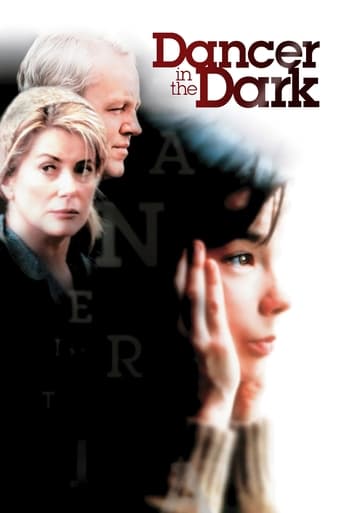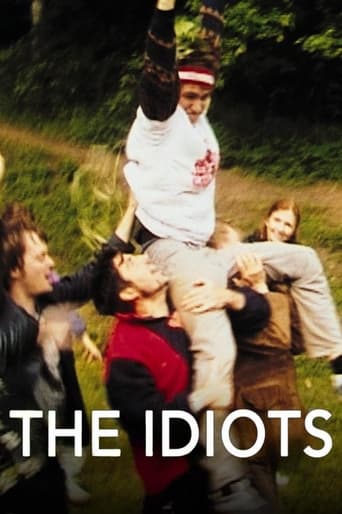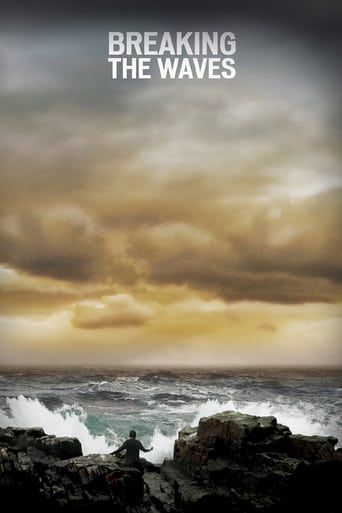


The Five Obstructions
Lars von Trier challenges his mentor, filmmaker Jørgen Leth, to remake Leth’s 1967 short film The Perfect Human five times, each with a different set of bizarre and challenging rules.
-
- Cast:
- Claus Nissen , Lars von Trier , Jacqueline Arenal , Alexandra Vandernoot , Patrick Bauchau , Anders Hove , Bent Christensen


Similar titles
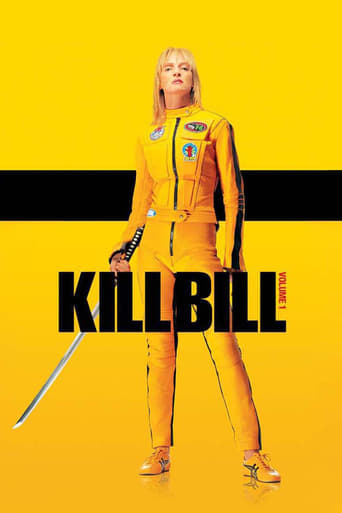
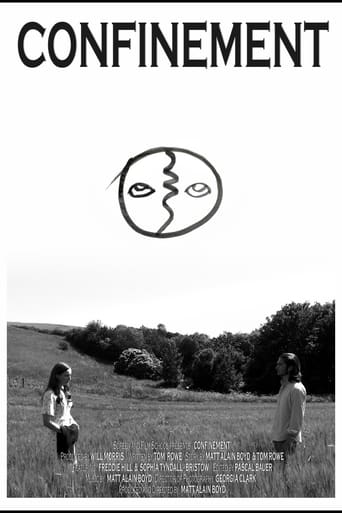
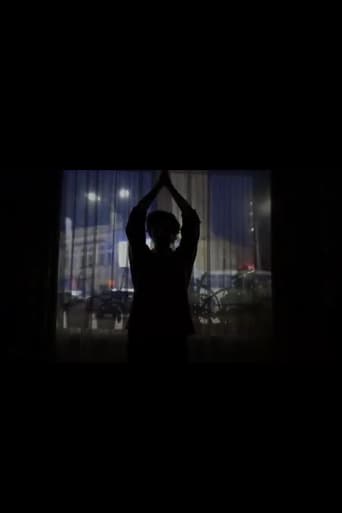
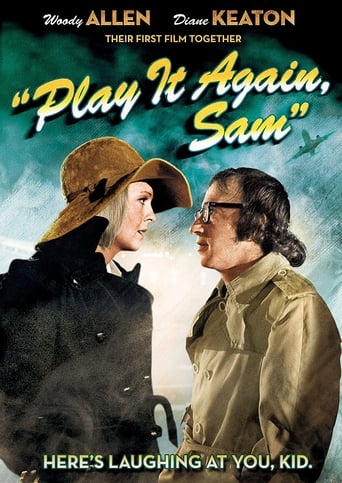
Reviews
It was OK. I don't see why everyone loves it so much. It wasn't very smart or deep or well-directed.
Like the great film, it's made with a great deal of visible affection both in front of and behind the camera.
The movie's neither hopeful in contrived ways, nor hopeless in different contrived ways. Somehow it manages to be wonderful
An old-fashioned movie made with new-fashioned finesse.
I really wanted to love this film. I still want to like it a lot. I am a big fan of any kind of obstruction or limitation. I really enjoy formal precepts. Oulipo is an amazing thing. Did it produce "masterpieces"? By extension...It cleared the air. It revealed the machinery and "made" nature of literary production. It de - reified "inspiration" and/or "emotion" in art. These things are great...The reflexivity in Godard...amazing. OK, the artificiality in Dogville! Also amazing.But I didn't feel the tension between the "Obstructions" and their products. The game was obvious, but what was learned? Leth made a few movies, and they all circled around The Perfect Human, his film from 1967. But did they land? He remade it in Bombay. He made it into a cartoon. He made it in Cuba. He made it as a classic "Three Colors: Whatever" Eurotrash film (in Brussels). Maybe the moral is you can never make a (former) mentor into a student, and if you think you really want to, you probably should start teaching. Get 'em while they're young, while they're really impressionable. Talk about restrictions as a kind of craft; make the students aware of the need to work and explore rather than to sit around and wait for "inspiration". This is surely useful. But for Leth? He seems happy enough self - medicating in his little quasi - retirement paradise in Haiti...what has he done since this film?The Perfect Human is not really a Masterpiece, IMHO. But it has in incredible "look". Sometimes I really think that the sixties were really the highpoint of filmmaking. The look of films from that time is so etched - lifelike and artificial, both at the same time. The screen image, the chiaroscuro...the clothes, the manner. Far away from the thirties "Dream Factory", but still aware that the film is an object, a thing...The Five Obstructions has that shiny, sweaty video look. It looks too casual. I can't take leave, not at all. I want to find the object that it is compelling. But I don't.
This is more than a beautiful tribute to Jørgen Leth's artistic genius.It is also Lars' personal and intimate confession so powerful and emotive no doubt it is there to overwhelm you. As in many von Trier's movies the revelation comes at a climatic moment completely changing the direction and the pace of the film. And suddenly it reveals so many intricate details of the great friendship between these two extraordinary artists of our times.The five remakes of "The Perfect Human" are as fascinating as the original short and are not to be missed by anyone who is interested in world cinema.
Jorgen Leth and Lars von Trier's Five Obstructions is, in a certain sense, collaboration as confrontation. The restrictions von Trier places on Leth are designed to frustrate the latter's inclination to distance, stylization, and abstraction (tendencies antithetical to the naturalism, spontaneity, and transparency of the Dogme school), and at least one restriction ("complete freedom") is explicitly intended as punishment for Leth's too-loose interpretation of a previous directive. Belying this atmosphere of conspiratorial coercion is the documentary footage of the meetings between the two directors, where their interaction is friendly and warm, not to say giddy. But other footage of Leth when von Trier is absent shows the elder director as bleak, almost stunned. In this game of flip-flopping submission and dominance, von Trier insists that Leth lower his guard (or his standards) and produce the kind of work von Trier repeatedly describes as "crap." Von Trier's not interested in art, but in therapy, as he reveals in the banal Obstruction #5, in which black-and-white documentary footage of the making of the previous four Obstructions are set as an illustrative montage to the sound of Leth's voice reading a letter to him written by von Trier, which exposes with crude and merciless sentimentality Leth's struggle with depression and von Trier's crusade to save him through the making of this film. Von Trier's mission would appear to be self-defeating, inasmuch as the brilliant flashes of ecstatic engagement that Leth displays throughout the documentary footage all occur when he has, despite von Trier's traps, continued to produce the gorgeous and intelligent cinema for which he is renowned (most notably in the very first and very best Obstruction, filmed in Cuba, which must answer the questions posed by the narrator of the original Perfect Human film, and which must contain no edit longer than twelve frames). Perhaps Leth's grimmest moment comes after he's screened his fourth Obstruction, a cartoon, for von Trier, who praises it slyly as representing the best of the best in the MTV style. Leth is clearly devastated, and we sense that he may have reconsidered his original comparison of himself with Faust and von Trier with Mephistopheles Faust, after all, did make a more or less fair exchange of his immortal soul for knowledge, while Leth has traded his own soul in order to be made a fool. While von Trier is right in saying at the outset, however, that none of the Obstructions will rival the original Perfect Human for either perfection or humanity, the collaboration yields some incredible results, not least of which is the documentation of the creative process itself. In the end, both von Trier's cruelty and his sentimentality seem suspect, and the documentary footage suddenly leaps into focus when we remember the way in which Dogme films often seem to wear the costume of the documentary or home movie. It's no fair asking to what extent the antagonism in von Trier and Leth's collaboration is actually a collusion between the directors. Regardless of how much of this film plays by Dogme's rules, however, nearly all the remakes shed a stunning illumination on the original Perfect Human and are themselves a delight.
Remake a film several times, with several restrictions (they really aren't obstructions: they seem so minor that they shouldn't stop him from finishing the films) For a director who seems to love the medium as much as Jorgen Leth seems to, it should be interesting to see him go through the progress of overcoming the challenge...if the film were challenging to make.The film in question, The Perfect Human, is the sort of art film that has made the word "art" so reviled to audiences. It features a guy doing nothing so interesting as walking on a pure white set, jumping, shaving, etc. as a narrator drones on. It says absolutely nothing. Give anyone a 35 millimeter camera and some money to waste, and I guarantee you they could make this film, shot for shot.Not to sound like an action movie junkie, but maybe if there was something that happened in this movie that was hard to do, or a story line, it would have met with my approval. But no, we have a remake of absolutely nothing over and over again.The remakes are, or course, just as shallow and pointless, but, notably, they look great: lots of polish. But it's like polishing a ball of shoe polish: there is no reason to look at it.Occasionally, unintentional humor surfaces, such as when Lars tells Jorgen to go Bombay, and make it there without letting the surroundings, which are chosen specifically for their awfulness affect the work. In essence, " go make your shallow film surrounded by infinitely more interesting material" and, of course, Jorgen does let a little local flavor in, and this pisses Trier off a little.Ordinarily, I'd just give this a two or three for being full of itself and pointless, but I'm knocking it down further for one little scene: for no reason, they leave in a moment of Leth and Trier eating caviar with some drink. This, an obvious attempt at trying to show themselves as sophisticated, just rubs in the audience's face "we're so rich that we freely waste money on overpriced crap." It made me think of all the poor, struggling filmmakers who want what would be pocket change for these guys, but no, the rich have to waste it on their own egos.It was nice to see Leth give a woman in Bombay with a child a few quid. So I'll give it two instead.

